School Highlights
ACT College serves 335 students (99% of students are full-time).
Minority enrollment is 76% of the student body (majority Hispanic), which is more than the state average of 53%.
Quick Stats (2025)
- Enrollment: 335 students
- Minority enrollment: 76%
- Source: Integrated Postsecondary Education Data System (IPEDS)
School Overview
The teacher population of 20 teachers has declined by 58% over five years.
ACT College
(VA) Community College Avg.
Institution Level
Less than 2 yrs
At least 2 but less than 4 years
Institution Control
Public
Private, non-profit
Total Faculty
20 staff
129 staff
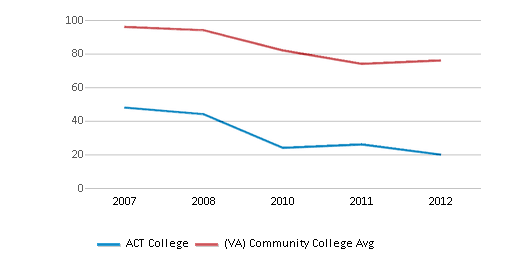
Student Body
The student population of ACT College has declined by 31% over five years.
The ACT College diversity score of 0.59 is less than the state average of 0.71. The school's diversity has grown by 47% over five years.
Total Enrollment
335 students
1,350 students
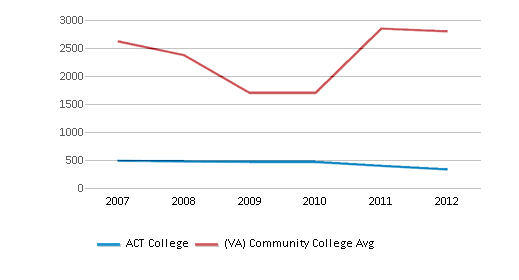
Student : Teacher Ratio
n/a
23:1
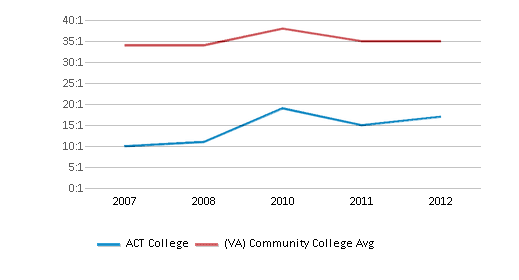
# Full-Time Students
331 students
637 students
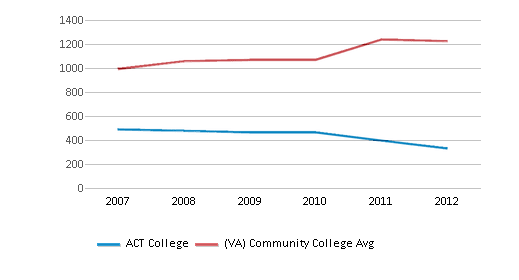
# Part-Time Students
4 students
971 students
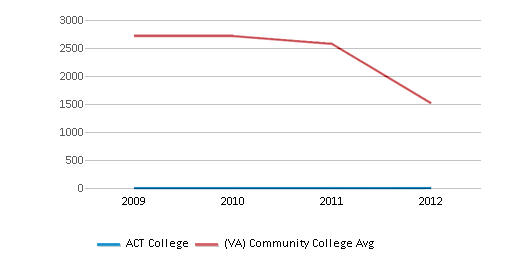
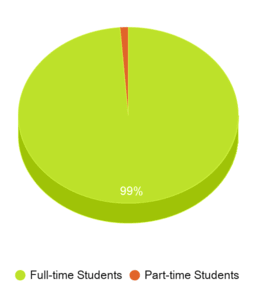
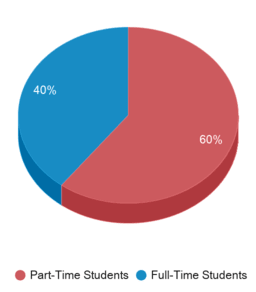
# Enrollment Undergraduate
n/a
314 students
# Full-Time Undergraduate Students
335 students
611 students
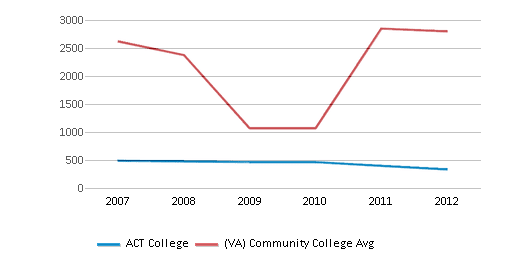
# Full-Time Graduate Students
n/a
158 students
# Part-Time Undergraduate Students
4 students
971 students
# Part-Time Graduate Students
n/a
61 students
Total Dormitory Capacity
n/a
476 students
% Asian
7%
8%
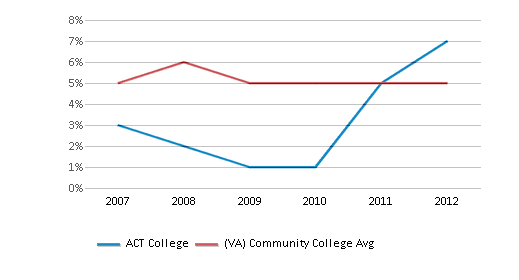
% Hispanic
59%
13%
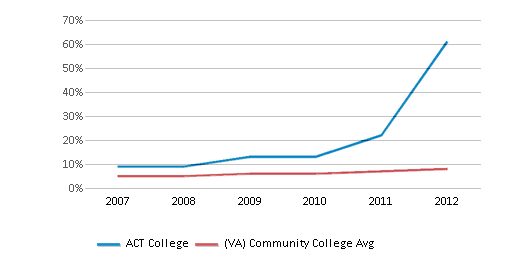
% Black
5%
21%
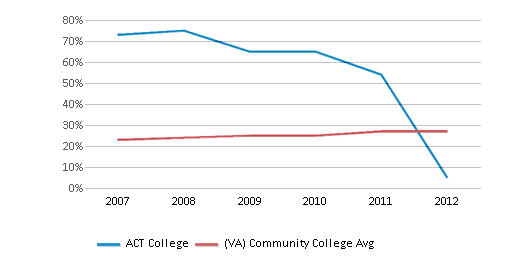
% White
24%
47%
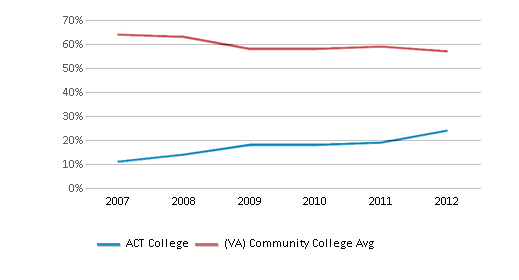
% Hawaiian
2%
n/a
% Two or more races
1%
5%
% Non Resident races
n/a
2%
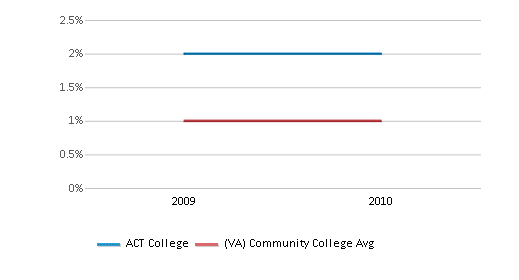
% Unknown races
2%
4%
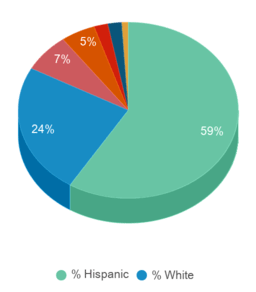
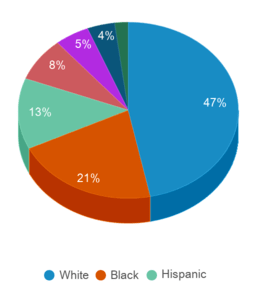
Diversity Score
0.59
0.71
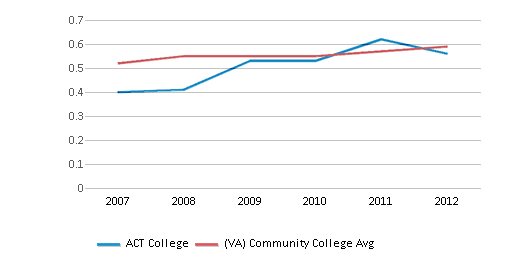
College Completion Rate (Students who graduate in less than 4 years)
73%
27%
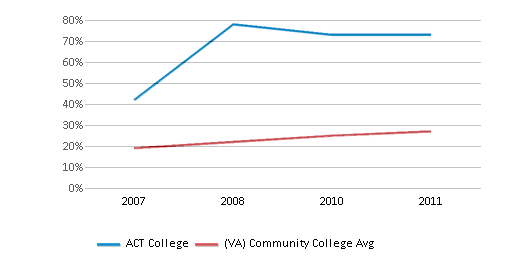
College Completion Rate (Students who graduate in 4 years or more than 4 years)
n/a
0.264%
Average Graduate Earnings (10 Years)
$33,000
$31,400
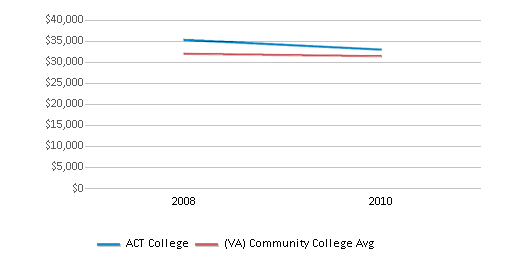
Tuition and Acceptance Rate
% Students Receiving Some Financial Aid
71%
75%
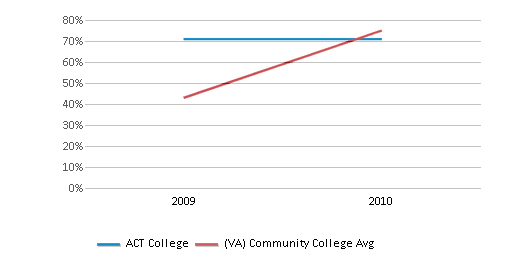
Median Debt for Graduates
$9,100
$9,463
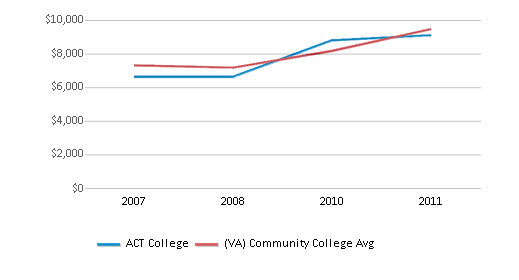
Median Debt for Dropouts
$5,868
$4,750
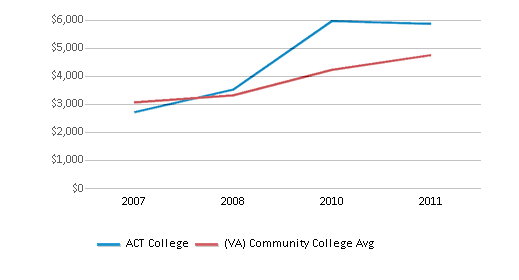
Acceptance Rate
n/a
59%
Source: 2012 (or latest year available) Integrated Postsecondary Education Data System (IPEDS)
Recent Articles

How To Craft the Perfect College Admissions Essay
Read on to learn the ins and outs of crafting the perfect college application essay.

Obtaining Your Bachelor's Degree at a Community College
Explore the evolving landscape of community colleges offering bachelor's degrees, addressing affordability, accessibility, and workforce needs.

A to Z of Community College Certificates and Courses
From business and healthcare to technology and skilled trades, the article showcases the breadth of options available to students seeking to enhance their knowledge, develop new skills, or pursue career advancement.









